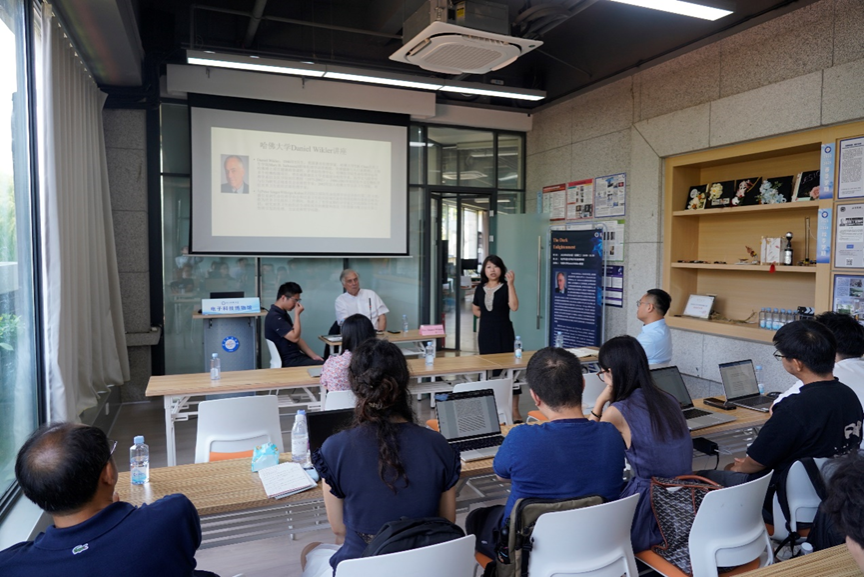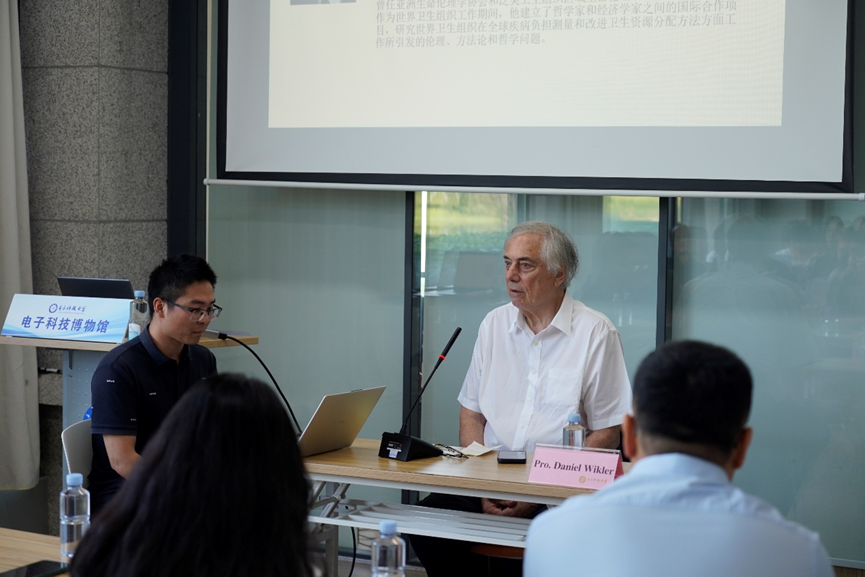On August 19, AI-HSS invited renowned American ethicist Professor Daniel Wikler, the Mary B. Saltonstall Professor of Population Ethics at the Harvard T.H. Chan School of Public Health and a faculty member in the Department of Global Health and Population, to deliver a lecture titled “Paternalism and Nanny Robots”. Professor Lei Ruipeng served as the moderator.
Professor Lei warmly welcomed and sincerely thanked Professor Wikler for coming to UESTC to deliver the academic lecture. She introduced Professor Wikler’s research background and the theme of the forum to the audience.

This lecture focused on re-examining the meaning and boundaries of "paternalism" in the context of the sweeping wave of artificial intelligence. Through thought-provoking questions, Professor Wikler guided the audience to reflect on whether AI can ethically justify forcing humans to pursue happiness according to its own design. He drew upon his previous work, Paternalism and the Mildly Retarded, which explored ethical analyses and arguments regarding decisions made by intellectually typical individuals for those with intellectual disabilities. He highlighted two key arguments: "relative position" and "threshold." These arguments remain highly relevant in the era of AI, where machine intelligence and superintelligence are involved in human decision-making. Even if machine intelligence can make better and more comprehensive decisions and predictions, whether humans should cede decision-making authority to AI remains a core issue requiring careful ethical reasoning and thorough consideration.

Professor Wikler emphasized that, in today’s societal context, reflecting on this question is of utmost importance. Our daily lives involve numerous ethical choices. Some decisions can be made without systematic ethical justification, while others must be grounded in sufficient ethical reflection before a choice can be made. It is precisely in the latter scenario that the value of ethicists becomes evident—they must shoulder the corresponding responsibility to provide theoretical support and guidance for these decisions.